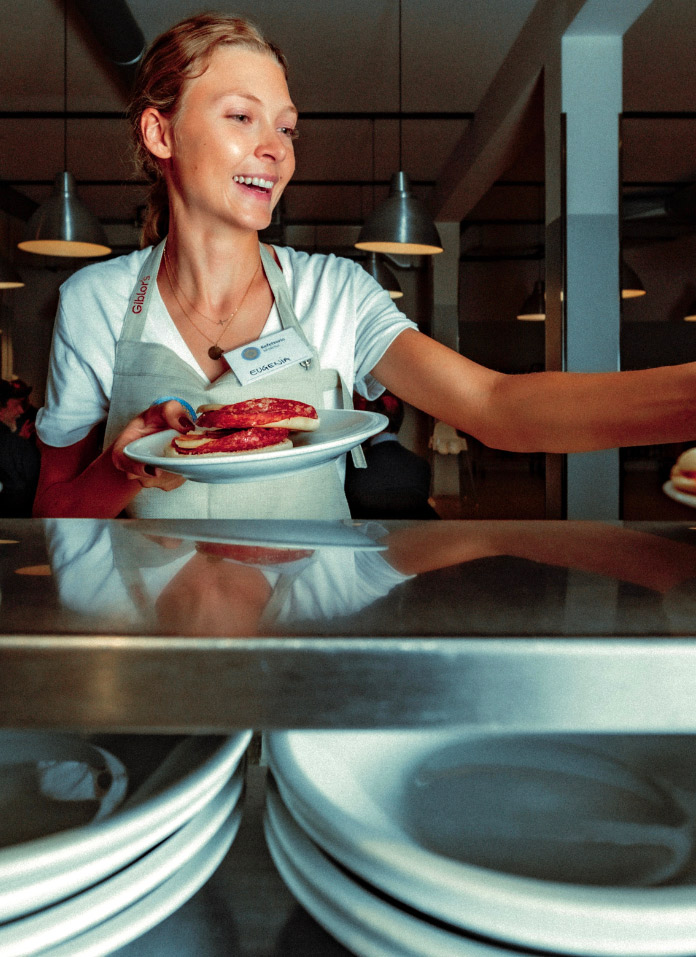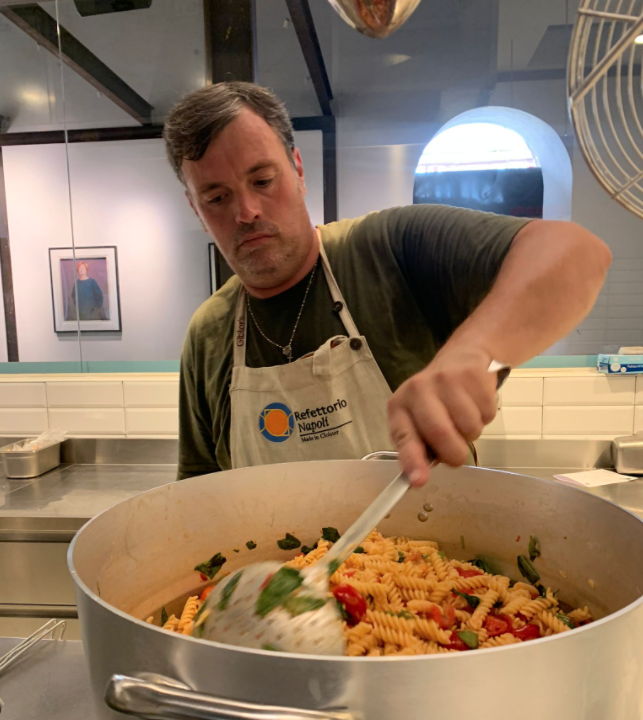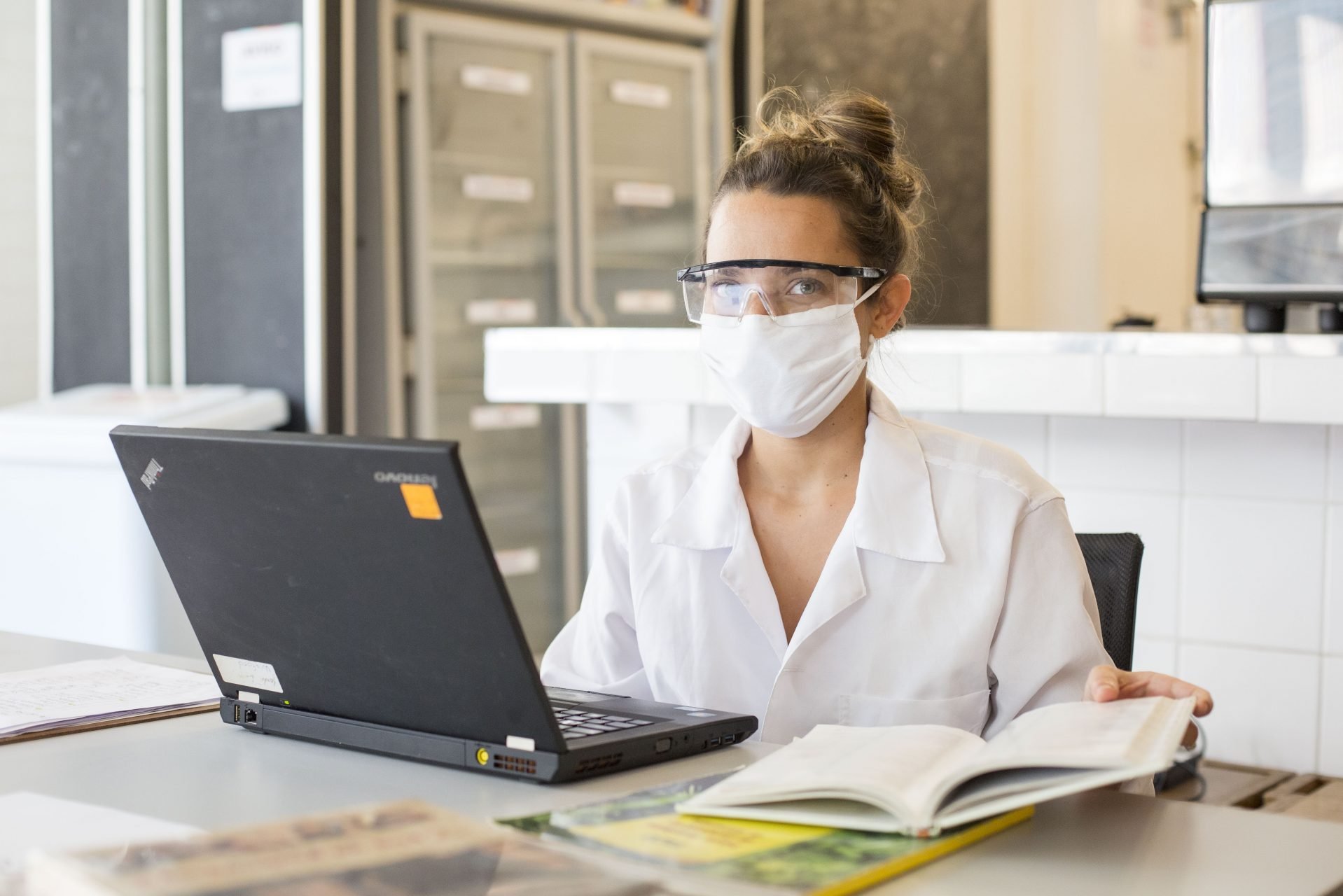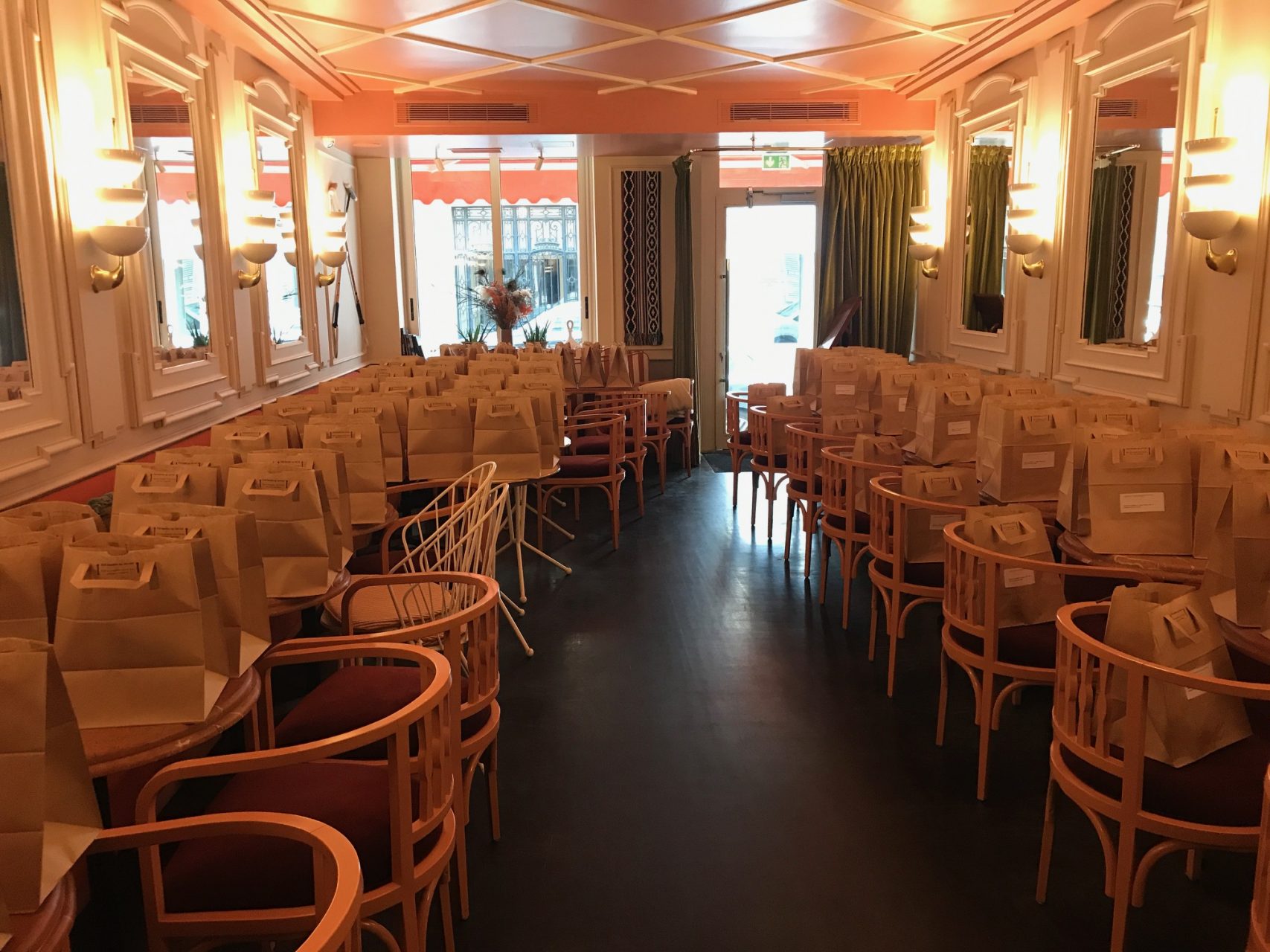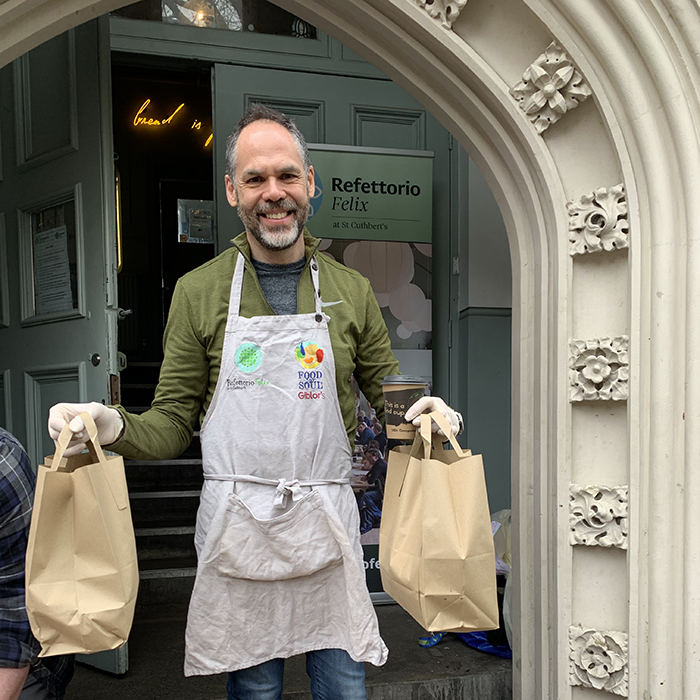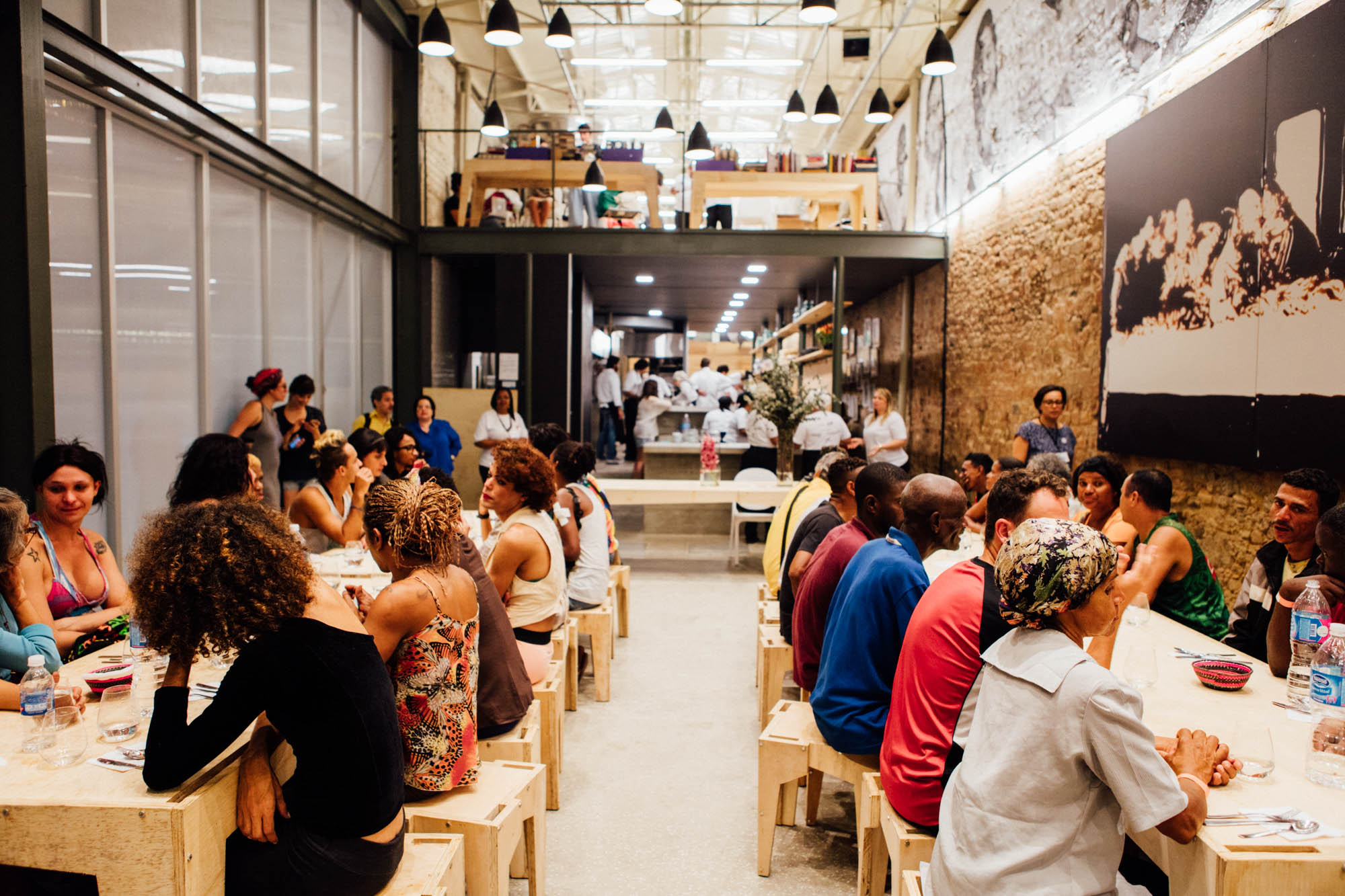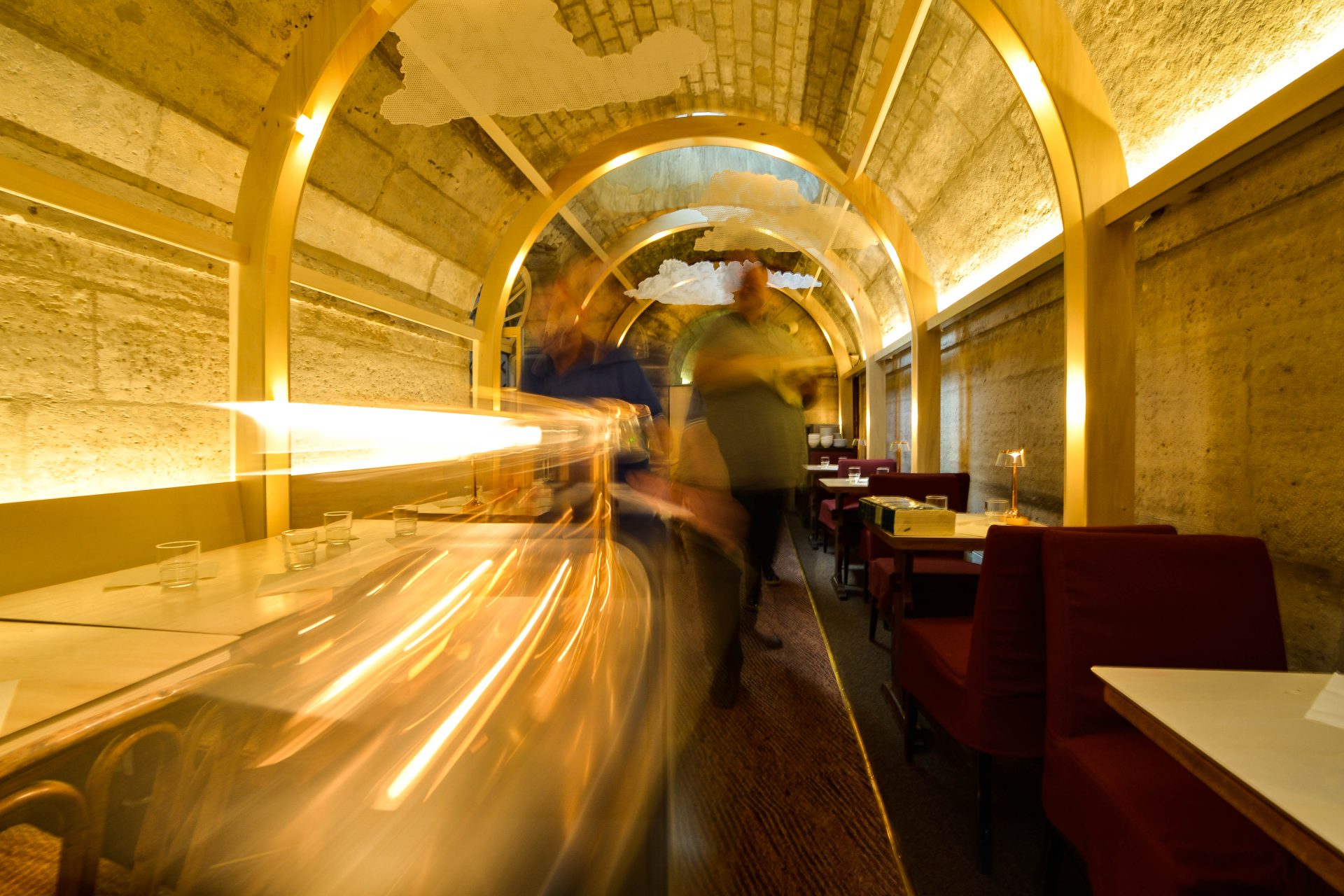Credits: Refettorio Paris
Volunteers at Refettorio Ambrosiano have an unbeatable curiosity which never ceases to amaze us. This time, eager to experience a different project, they flew to Paris to meet guests and volunteers at Refettorio Paris.
Manuela is a volunteer at Refettorio Ambrosiano in Milan. Driven by a constant desire to learn and discover new realities, last year she went to Refettorio Felix in London with a group of six volunteers. A few weeks ago, they replicated in Paris. Here are her thoughts.
What differences did you see between the services in Milan, Paris and London?
In Paris, volunteers are briefed before each service. Each volunteer is then assigned to a table using a map of the Refettorio. Like in a real restaurant, the dishes that come out of the kitchen are counted. It’s all very structured and organised. At the beginning we were surprised, then the chef told us that initially the service was different, but they had problems because they ended up preparing more dishes than needed, so they had to find a solution.
At Refettorio Ambrosiano, the service is completely different: there are only three long communal tables and each one of them is assigned to a group of two or three volunteers. From the kitchen you can oversee the dining room so it is easier to count dishes.
London works in a similar way, but they are open for lunch instead of dinner and there’s enough space to host other kinds of activities. For instance, there’s a room with couches where guests can relax, a television, a wardrobe, etc.
What did you think of the guest population in Paris?
In Paris, there are a lot of senior citizens, while in Milan the guest population is mostly comprised of migrants or people who don’t have a place to live. In Paris, I had the feeling that most of the guests were isolated members of the community who found in the Refettorio a welcoming space where they can spend a few hours in the company of others.
Do you think it is useful to give volunteers the chance to visit other projects?
It is a great opportunity, because you have the chance to see and compare different realities and to connect with other volunteers. In Paris, volunteers are not always the same, they can change and that’s why before every service the volunteer coordinator briefs everyone.
In Milan, volunteers are more regular, it’s more or less always the same group of people and they know each other. When we were in London, many of the regular volunteers weren’t there, but usually there is a good mix of new and regular volunteers.
But what all volunteers share, regardless of their location, is the Value Of Hospitality. At the end of our service in Paris, for instance, the local volunteers played Italian songs on loudspeakers to thank us for volunteering with them. It was a nice thought and it reminded me of something that we have started doing at Refettorio Ambrosiano where the staff keeps the volume of the radio in the kitchen high enough for the guests to hear the music in the dining hall. The feeling is beautiful, it’s like being at home.
Is there anything that you would improve in the projects that you have been able to visit?
Each project has its own peculiarities, and that’s what makes them unique. Each Refettorio has a positive effect on the neighborhood and city where it’s located.
In London, guests are invited to participate in the other activities offered by the Refettorio, so they end up spending more time there.
In Milan, the guests would love to stay a little longer once the service is over, but unfortunately it is not possible for now as most of them have to travel back to the shelters before they close for the night.
The other volunteers and I were thinking that it would be nice to give guests the chance to stay longer or to come in before the dinner service starts. Especially in winter, they are often cold and the Refettorio could be a warm, cosy place where they can find refuge. It would also be nice to offer them breakfast or an afternoon snack, like a hot chocolate on cold days. The purpose would be to give them something more than “food aid” and to expand the concept of hospitality.




